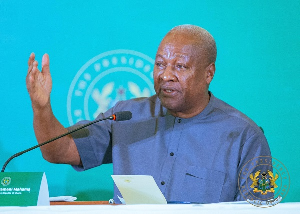Accra, March 31, GNA - An appeal has gone to government to offer financial assistance to private companies engaged in waste collection to enable them acquired the needed equipment to facilitate waste management in the cities.
This, government could do by setting up an environmental management team to source for loans or to guarantee loans that the private companies apply for, from the banks.
Reverend Robert Nelson Adayi, Executive Director, TREDS Envitech Limited, an environmental technology consultancy and management firm, who made the call, said the septic emptiers, refuse compactors and other waste-handling equipment were very expensive and most firms were therefore unable to acquire them in large quantities to meet the scope of work involved in waste collection in the cities. He said the unwillingness of the banks to give long-term loans was also making it difficult for the private sector operators to get the full complement of resources in terms of equipment to tackle the growing menace of waste.
Rev. Adayi suggested that instead of government buying the equipment for district assemblies, the equipment could be allocated to the private sector to work with and pay back the cost involved. Government, he said, would benefit substantially from this arrangement, since the cost of equipment would be paid for, while at the same time government received income in the form of franchise fees to the district assemblies.
Touching on the payment of waste, Rev. Adayi said the mentality that government bore the cost of waste collected, should be done away with, adding that, people must be encouraged to pay for the waste they generated.
He emphasised the importance of recycling in the waste collection equation, saying that, paying contractors to dispose of waste on the basis of weight was not the best. "Handling waste by such methods is defeating the real purpose of waste management that has the objective of turning waste into other useful resource, rather than merely disposing off what we do not want," he said.
Rev Adayi said his company was introducing waste managers to a Swedish Technology that dewaters faecal waste into compost for agricultural purposes and vegetation. The technology, he said, was environmentally friendly and in use in many of the advanced countries, which used them to boost agriculture production.
Regional News of Friday, 31 March 2006
Source: GNA












